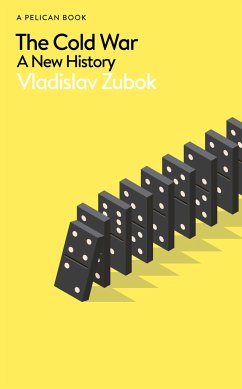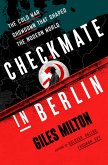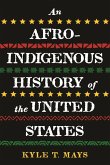A sweeping, original history of the Cold War, from an acclaimed historian of the USSR
Why did the Cold War erupt so soon after the Second World War? How did it escalate so rapidly, spanning five continents over six decades? And what led to the spectacular collapse of the Soviet Union?
In this comprehensive guide to the most widespread conflict in contemporary history, Vladislav Zubok traces the origins of the Cold War in post-war Europe, through the tumultuous decades of confrontation, to the fall of the Berlin Wall and beyond.
With remarkable clarity and unique perspective, Zubok argues that the Cold War, often seen as an existential battle between capitalist democracy and totalitarian communism, has long been misunderstood. He challenges the popular Western narrative that economic superiority and democratic values led the USA to victory. Instead, he looks beyond the familiar images of East-West rivalry, shining a light on the impact of non-Western actors and placing the war in the context of global decolonization, Soviet weakness and the accidents of history. Here, he interrogates what happens when stability and peace are no longer the default, when treaties are broken and when diplomacy ceases to function.
Drawing on years of research and informed by Zubok's three decades in the USSR followed by three decades in the West, The World of the Cold War paints a striking portrait of a world on the brink.
Why did the Cold War erupt so soon after the Second World War? How did it escalate so rapidly, spanning five continents over six decades? And what led to the spectacular collapse of the Soviet Union?
In this comprehensive guide to the most widespread conflict in contemporary history, Vladislav Zubok traces the origins of the Cold War in post-war Europe, through the tumultuous decades of confrontation, to the fall of the Berlin Wall and beyond.
With remarkable clarity and unique perspective, Zubok argues that the Cold War, often seen as an existential battle between capitalist democracy and totalitarian communism, has long been misunderstood. He challenges the popular Western narrative that economic superiority and democratic values led the USA to victory. Instead, he looks beyond the familiar images of East-West rivalry, shining a light on the impact of non-Western actors and placing the war in the context of global decolonization, Soviet weakness and the accidents of history. Here, he interrogates what happens when stability and peace are no longer the default, when treaties are broken and when diplomacy ceases to function.
Drawing on years of research and informed by Zubok's three decades in the USSR followed by three decades in the West, The World of the Cold War paints a striking portrait of a world on the brink.
Among the scholars writing about the history of Soviet/ Russian foreign policy, Vladislav Zubok is one of the most distinguished. We are fortunate that he has now turned his attention to writing an overall account of the Cold War. This provocative, comprehensive, and insightful analysis not only incorporates the latest scholarship but is also remarkably lucid and accessible. Students will be enlightened; experts will be challenged to reassess their thinking. This volume is a major contribution Melvyn P. Leffler








